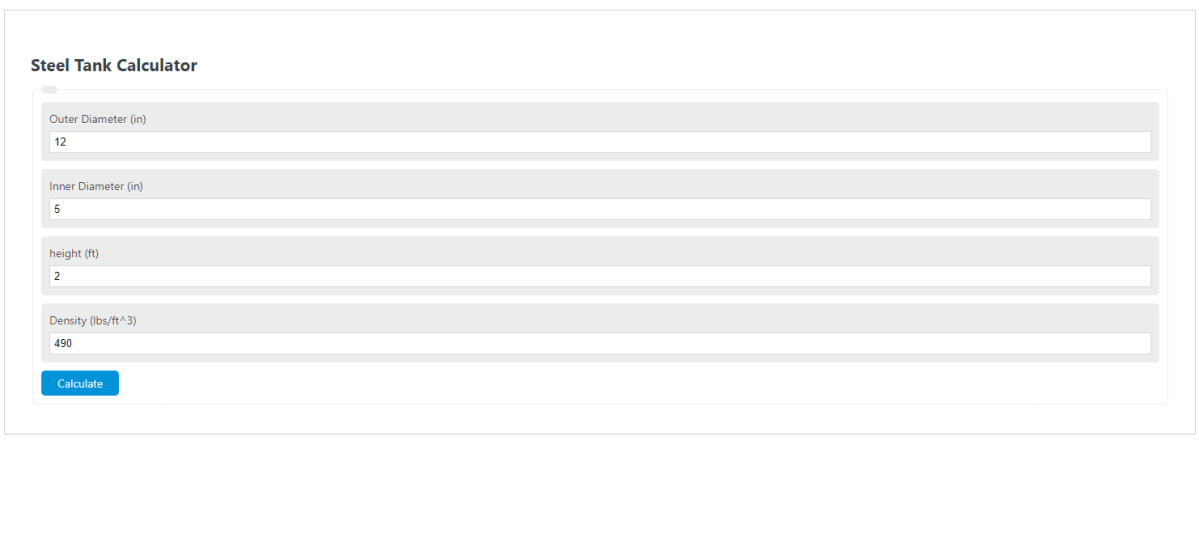Enter the inner diameter, outer diameter, density, and height of the steel tank to calculate the total weight and capacity.
- Cylinder Capacity Calculator
- Column Volume Calculator
- Grain Bin Capacity Calculator
- Boulder Weight Calculator
- Silo Capacity Calculator
Steel Tank Formula
The following formula is used to calculate the weight of a steel tank.
W = pi * (Do/12-Di/12)^2/4*h*d
- Where W is the weight (lbs)
- Do is the outer diameter (in)
- Di is the inner diameter (in)
- h is the height (ft)
- d is the density (lbs/ft^3)
To calculate the steel tank weight, subtract the volume of the inside of the tank from the volume of the total tank, including walls, then multiply by the density.
What is the weight of a steel tank?
Definition:
The weight of a steel tank will depend on the height and wall thickness of the tank. This, along with the density, which is 490 pounds per cubic foot, gives the weight of the steel tank.
How to calculate weight of a steel tank?
Example Problem:
The following example outlines how to calculate the weight of a steel tank.
First, determine the inner diameter. For this example, the inner diameter is measured to be 5 inches.
Next, determine the outer diameter. This outer diameter is 12 inches.
Next, determine the height of the tank. The height is measured to be 2ft.
Finally, using the information above, and the density of 490 pounds per cubic foot, calculate the steel tank weight.
W = pi * (Do/12-Di/12)^2/4*h*d
W = 3.14159* (12/12-5/12)^2/4*2*490
W = 261.908 lbs
FAQ
How do you convert the dimensions from inches to feet in the steel tank formula?
To convert dimensions from inches to feet in the steel tank formula, you divide the dimension in inches by 12, as there are 12 inches in a foot. This is seen in the formula with the outer diameter (Do) and inner diameter (Di) both being divided by 12 before being used in the calculation.
Why is density an important factor in calculating the weight of a steel tank?
Density is crucial because it represents the mass per unit volume of the material. In the context of a steel tank, the density of steel affects the overall weight of the tank because it determines how much mass is present in a given volume of the tank’s material. The higher the density, the heavier the tank will be for a given size.
Can this formula be used for tanks made of materials other than steel?
Yes, the formula can be used for tanks made of materials other than steel, as long as you have the correct density value for the material in question. The density (d) in the formula represents the material’s density, and by substituting the density of another material, you can calculate the weight of a tank made from that material.
